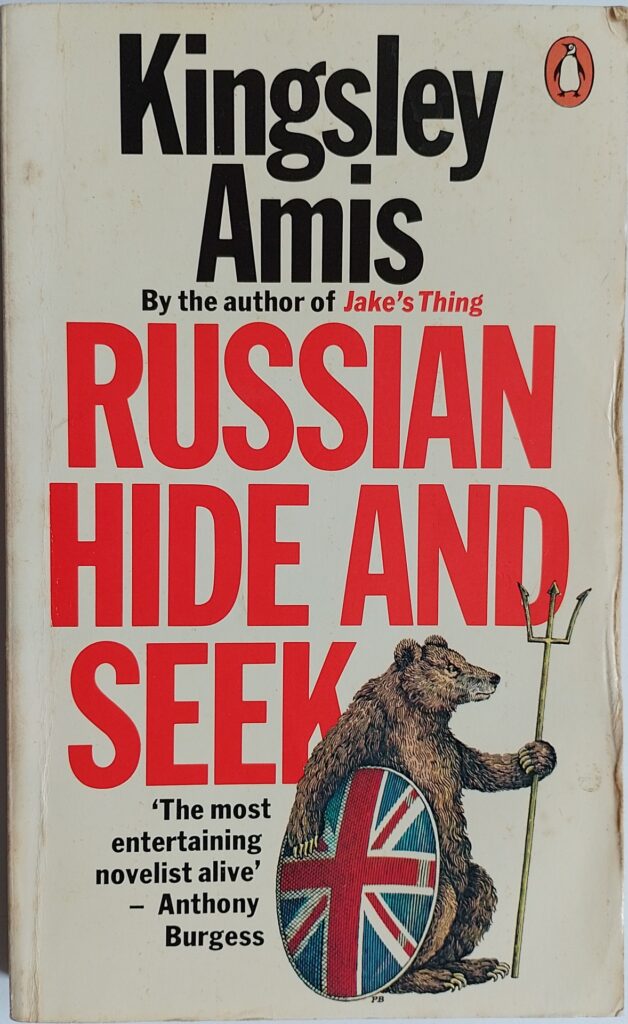First published 1980. Penguin, paperback, 1981, pp 251, c.85,000 words.
Amis is of course well known for writing comic novels, so I assumed this was going to be another, particularly given the cover blurb. It does have its comic elements, but I wouldn’t describe it as a comic novel. Inside it says on the title page ‘a melodrama’, but I wouldn’t describe it as that either. To some degree this is a pastiche of Russian novels and plays, and Amis makes this explicit at one point when he has a character musing to himself that he no longer had time to behave ‘like someone in a nineteenth century Russian novel.’ The book’s opening immediately reminded me of a Chekov play but the ending is more Solzhenitsyn, so clever Amis is successful in that regard.
The story is set in England sometime in the early twenty-first century, long after Soviet Russia has invaded and occupied the country. Russians hold all the power positions and have an occupying army. It might have been like this after the Roman and Norman invasions when the previous power elites have been completely displaced. The locals are reduced to serfdom and nearly all traces of the previous culture have been erased. Somehow all is not well. The landscape has been devasted with only the trunks of trees no older than twenty years standing. Grand houses have survived but their interiors have been stripped and are now occupied by powerful Russians. There are a few motor vehicles, but most transport has reverted to using horses. Either there are no skilled artisans to maintain mechanisation or there is almost no fuel. The army has what is effectively a nineteenth century cavalry. This alternative future is very effectively constructed.
Amis has quite a bit of fun with the Russians using British slang expressions, often inappropriately. It is supposed to demonstrate their sophistication and empathy with the locals. There is a project on to revive elements of past British culture but this is entirely organised top-down by the Russians. Amis has some fun with this too: a couple of plays are being performed in the local theatre and the audience finds Look Back in Anger hilarious but are largely bored by Romeo and Juliet. After a fortune teller uses cards there is a list of things that might be really true (amongst a long list) faith-healing, the Loch Ness monster, flying saucers, religion, socialism, vegetarianism, etc. Almost everyone is going to be upset by something in the list.
The story is largely told from the point of view of a twenty-something junior cavalry officer, son of the local commissar. War and Peace is brought to mind, with some effective military exercise passages. More late-twentieth-century is the explicit amount of sex he indulges in. He is an irresponsible character, totally tied up with his own desires for excitement of all kinds.
Amis writes well and the story runs along efficiently. There are a few odd passages which I felt Amis was determined to put in, but which didn’t quite jell. For example, there is an extensive passage where, as part of the cultural festival, a church service is held – an evensong from the book of common prayer. It includes quite a long passage of the sermon, which Amis seems to be equivocal about: in one way admiring the old text and the beliefs of the priest, but injecting his own snide aside.
So, an unusual Amis. Part pastiche, part dystopia, well written on the whole, funny in parts, dark in others, effective in that it makes one ponder.
© William John Graham, September 2022

